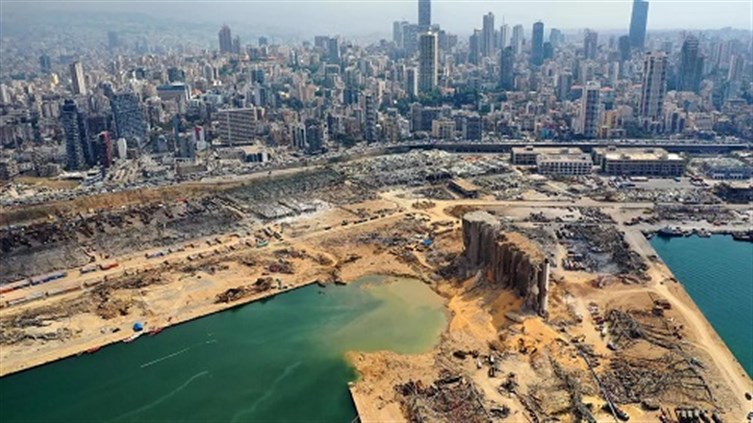
Months after a huge explosion in Beirut’s port, the investigation has become mired in politics as powerful forces band together to block efforts to hold leaders accountable.
By Ben Hubbard-
BEIRUT, Lebanon — More than four months after the largest explosion in Lebanon’s history sent a shock wave of death and destruction through Beirut, not a single official has accepted responsibility for the blast or publicly explained how a stockpile of explosive material was left unsecured in the Beirut port for six years.
In fact, powerful politicians are working to block the judge in charge of the investigation from questioning senior officials, much less holding them to account. On Thursday, the judge paused the inquiry to respond to an effort by two officials to have him removed from the case.
The blast — which killed 200 people, wounded thousands and inflicted billions of dollars in damage — was the starkest example yet of the grave dangers posed by the chronic corruption and mismanagement that have left the Lebanese with a dysfunctional state, poor services and a collapsing economy.
A broad coalition of angry citizens has cast the explosion as a watershed moment that could lead to real change in the way Lebanon is governed and break the culture of impunity that has long protected politicians from accountability. But they face fierce resistance from a political elite determined to preserve its prerogatives.
“This blast was a milestone in Lebanese history,” said Nizar Saghieh, a lawyer who heads The Legal Agenda, a rights watchdog. “It is not just about the blast, it is the whole system. If we fail in this battle, we will not be able to hold anyone accountable for the country’s collapse.”
Damage from the August disaster still scars much of central Beirut.
Inside the port, gutted grain silos loom over the blast crater and demolished storage hangars. Downtown, metal sheets cover entrances to gutted shops and hotels. In residential neighborhoods, scaffolding climbs apartment buildings where families are still trying to replace blown-out windows and replace furniture.
The government has done little in the hardest hit neighborhoods, so charities have taken the lead in piecemeal reconstruction efforts.
The explosion compounded the trauma of existing political and economic crises. Lebanon’s currency was collapsing, its banks were refusing to give people their money and its politicians had repeatedly failed to make reforms required to unlock international aid.
Street protests calling for an end to corruption and changes to Lebanon’s political system had torn Beirut apart, but failed to shake a system dominated by sectarian political parties that use the state to expand their power and enrich themselves and their loyalists.
The explosion was caused by the sudden combustion of a large stockpile of ammonium nitrate, a compound used to make explosives, that had been stored haphazardly in the Beirut port despite repeated warnings about its danger.
Prime Minister Hassan Diab promised a comprehensive investigation, and the task fell to a 60-year-old judge with little public profile, Fadi Sawan. Judge Sawan began questioning people in a windowless office in the Hall of Justice that was so small there was scarcely room for the case files, an associate said. He has since acquired more space, but his staff consists of only two clerks, who take notes by hand.
His task is immense: not only to determine what caused the explosion, but also to search for evidence of criminality related to the arrival of the ship that brought the chemicals to Beirut in 2013, the decision to store them in the port a year later and their handling since.
That mission put the judge on a collision course with powerful figures. Documents obtained by The New York Times and other news outlets after the blast showed that a range of senior officials had been warned about the ammonium nitrate — including the president, the prime minister, the head of the army, and a number of judges and ministers — and failed to have it removed or protected.
This month, Judge Sawan stunned the political establishment by charging four powerful politicians with criminal neglect causing death: Mr. Diab, who resigned along with his cabinet after the blast but has continued in a caretaker capacity; two former ministers of public works who oversaw the port; and a former finance minister who ran the customs authority.
